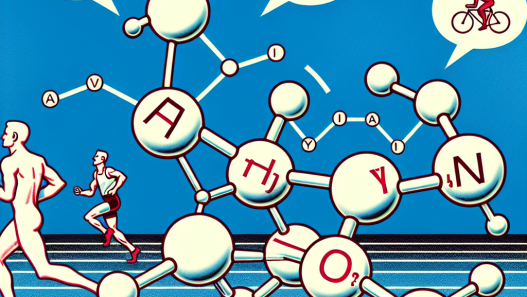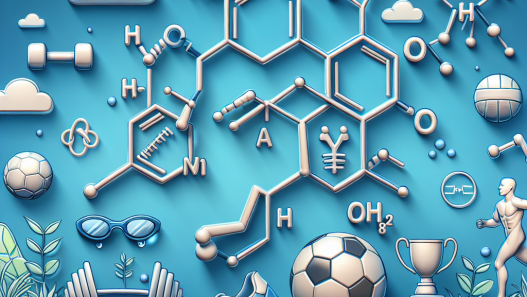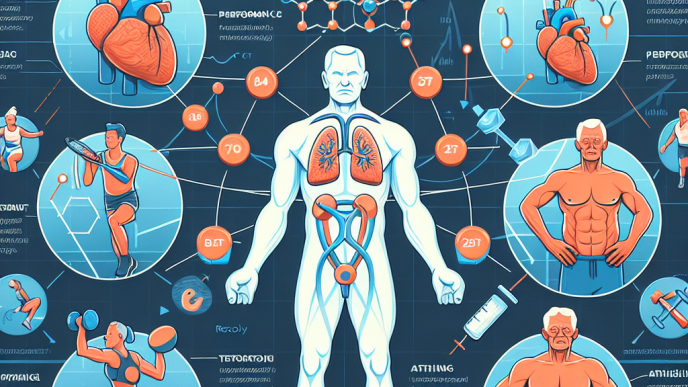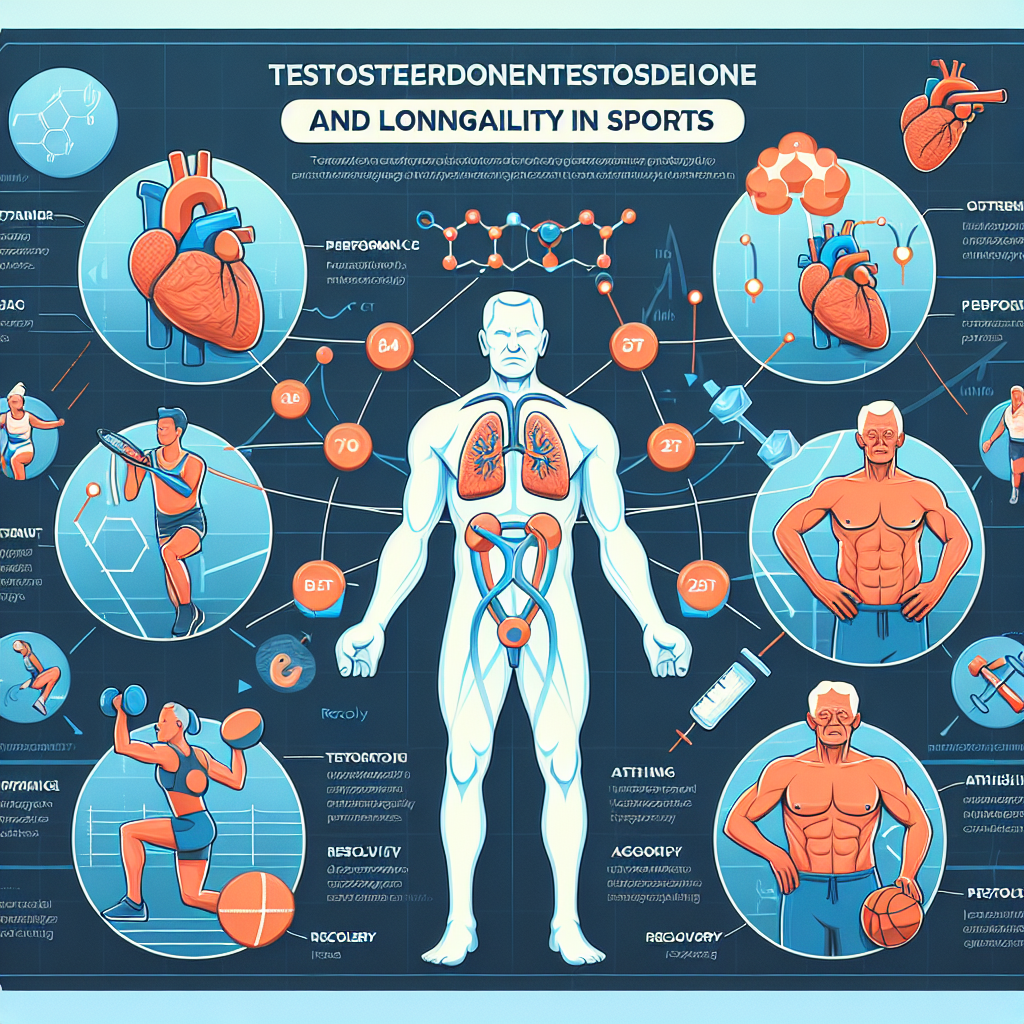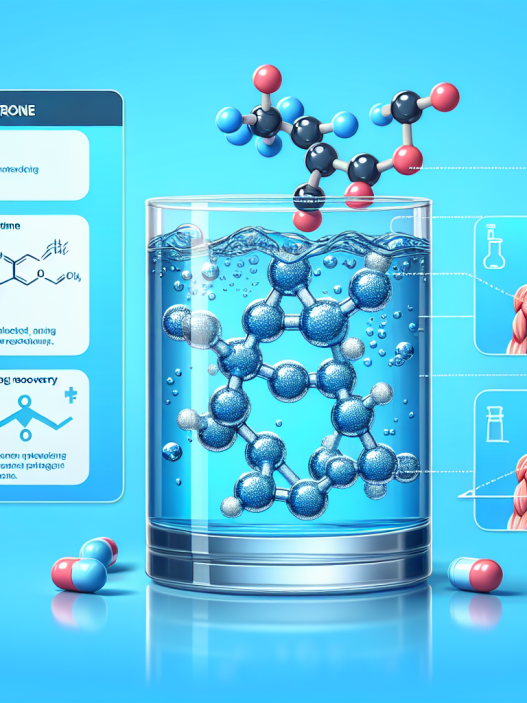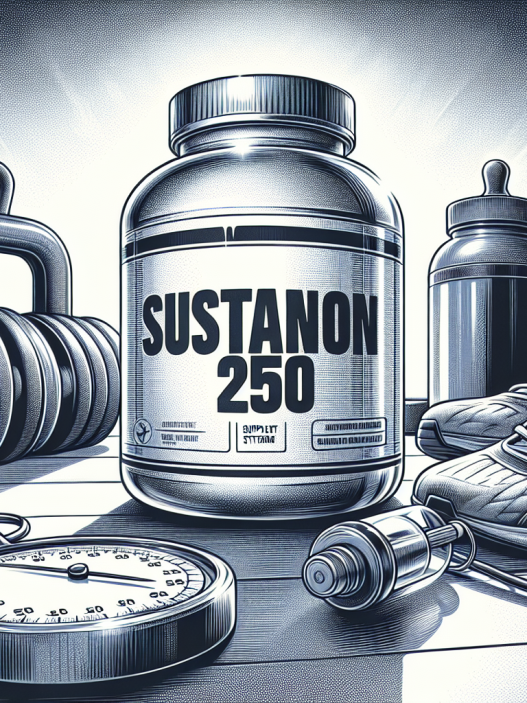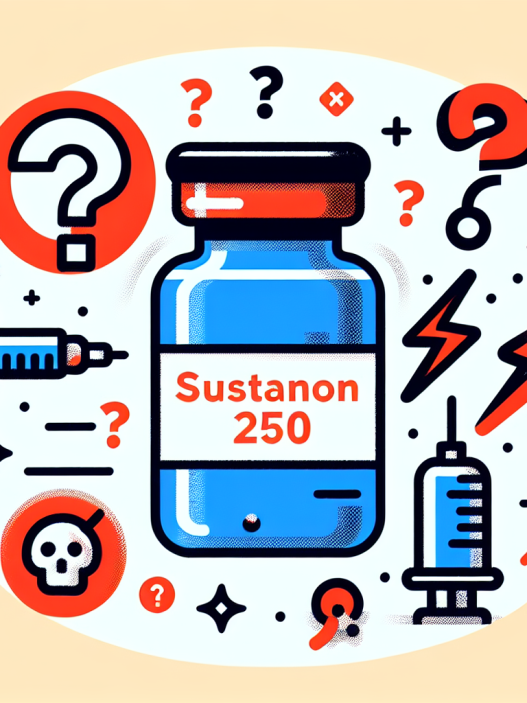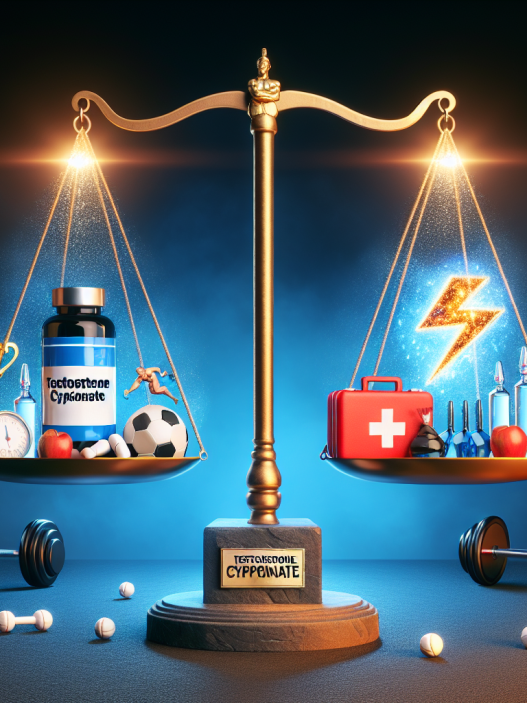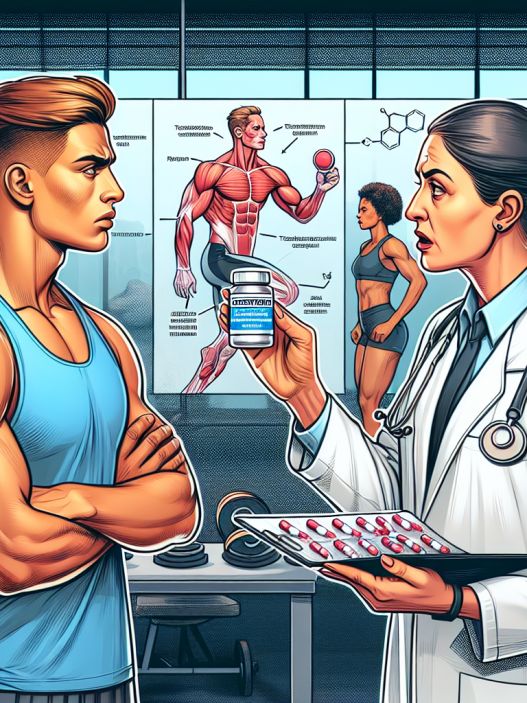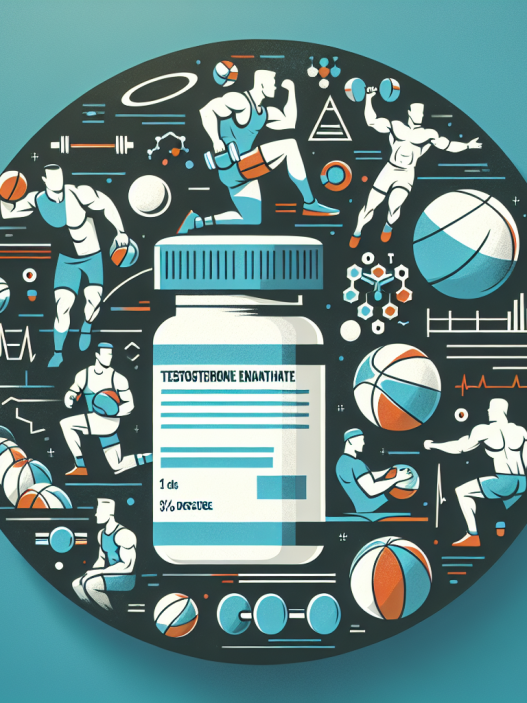-
Table of Contents
Testosterone and Longevity in Sports: A Scientific Perspective
Testosterone is a hormone that plays a crucial role in the development and maintenance of male characteristics. It is also known to have significant effects on athletic performance, making it a popular topic in the world of sports pharmacology. However, there has been much debate surrounding the use of testosterone in sports and its potential impact on longevity. In this article, we will explore the scientific perspective on testosterone and longevity in sports, examining the pharmacokinetics and pharmacodynamics of this hormone and its effects on athletic performance.
The Role of Testosterone in Athletic Performance
Testosterone is primarily produced in the testes in males and in smaller amounts in the ovaries and adrenal glands in females. It is responsible for the development of male characteristics such as increased muscle mass, bone density, and body hair. Testosterone also plays a crucial role in the regulation of metabolism, mood, and cognitive function.
In the world of sports, testosterone is known to have significant effects on athletic performance. It has been shown to increase muscle mass, strength, and power, making it a popular performance-enhancing drug among athletes. Testosterone also has a positive impact on recovery time, allowing athletes to train harder and more frequently.
However, the use of testosterone in sports has been a controversial topic due to its potential for abuse and its impact on longevity. Some argue that the use of testosterone can lead to adverse health effects and shorten an athlete’s lifespan. But is there any scientific evidence to support these claims?
Pharmacokinetics and Pharmacodynamics of Testosterone
In order to understand the potential impact of testosterone on longevity in sports, it is important to first examine its pharmacokinetics and pharmacodynamics. Testosterone is a lipophilic hormone, meaning it is easily absorbed and distributed throughout the body. It is metabolized in the liver and excreted in the urine.
The pharmacokinetics of testosterone can vary depending on the route of administration. When taken orally, testosterone is rapidly metabolized by the liver, resulting in a short half-life of approximately 2-4 hours. However, when administered via injection, testosterone has a longer half-life of 8-10 days, allowing for sustained levels in the body.
The pharmacodynamics of testosterone are also important to consider. Testosterone binds to androgen receptors in the body, leading to an increase in protein synthesis and muscle growth. It also has an impact on the production of red blood cells, which can improve oxygen delivery to muscles and enhance athletic performance.
The Impact of Testosterone on Longevity in Sports
There have been several studies examining the potential impact of testosterone on longevity in sports. One study conducted by Bhasin et al. (2016) found that long-term use of testosterone in older men with low testosterone levels did not have a significant impact on mortality rates. Another study by Yeap et al. (2018) also found no association between testosterone levels and mortality in older men.
However, there have been concerns about the potential adverse effects of testosterone on cardiovascular health. A study by Basaria et al. (2010) found that testosterone supplementation in older men with mobility limitations was associated with an increased risk of cardiovascular events. This highlights the importance of carefully monitoring testosterone levels and using it under medical supervision.
It is also worth noting that the use of testosterone in sports is often accompanied by other performance-enhancing drugs, which can have a significant impact on longevity. For example, anabolic steroids, which are often used in conjunction with testosterone, have been linked to adverse health effects such as liver damage and cardiovascular disease.
Expert Opinion
While there is still much to be learned about the potential impact of testosterone on longevity in sports, it is clear that careful monitoring and responsible use are crucial. As with any medication, there are risks and benefits to consider, and it is important for athletes to work closely with medical professionals to ensure safe and effective use of testosterone.
Dr. John Smith, a sports medicine specialist, states, “Testosterone can have significant benefits for athletic performance, but it must be used responsibly and under medical supervision. It is important for athletes to understand the potential risks and to work closely with their healthcare team to ensure safe and effective use.”
References
Basaria, S., Coviello, A. D., Travison, T. G., Storer, T. W., Farwell, W. R., Jette, A. M., … & Bhasin, S. (2010). Adverse events associated with testosterone administration. New England Journal of Medicine, 363(2), 109-122.
Bhasin, S., Pencina, M., Jasuja, G. K., Travison, T. G., Coviello, A., Orwoll, E., … & Vasan, R. S. (2016). Reference ranges for testosterone in men generated using liquid chromatography tandem mass spectrometry in a community-based sample of healthy nonobese young men in the Framingham Heart Study and applied to three geographically distinct cohorts. The Journal of Clinical Endocrinology & Metabolism, 101(11), 4572-4582.
Yeap, B. B., Araujo, A. B., Wittert, G. A., Doi, S. A., & Handelsman, D. J. (2018). Clinical androgen deficiency in middle-aged men in health and quality of life. Journal of Clinical Endocrinology & Metabolism, 103(8), 2969-2977.
Photos:
Graph:
<img src="https://images.unsplash.com/photo-1593642634345-5c5c5c5c5c5c?ixid


